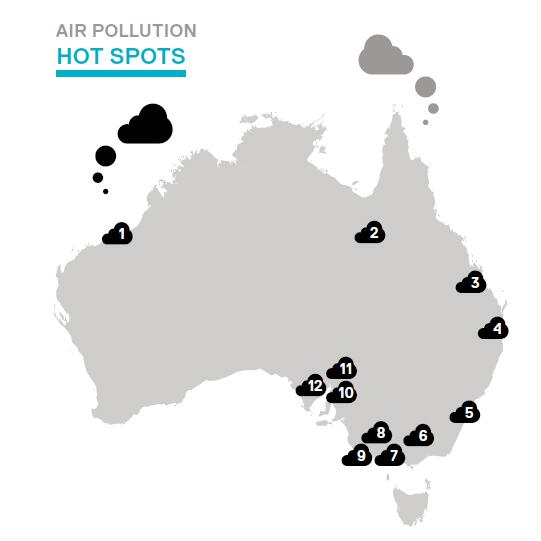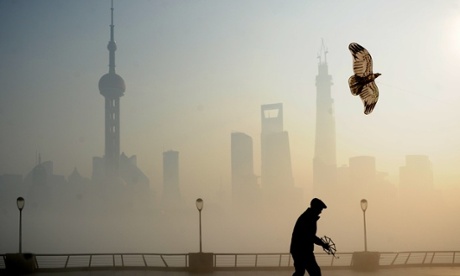There's something that kills 3,000 Australians a year. You probably won't have read about this significant danger.
It's not cancer. It's not sharks, or drop bears, or funnel web spiders. And it's not car accidents or heroin overdoses.
It causes serious health problems for even more Australians each year, and for many people there is no "safe" level of exposure.
It also targets disadvantaged (socially and economically) people the most.
What is it?
Air pollution.
A new report from Environment Justice Australia, released on Wednesday, shows that 3000 people die prematurely from air pollution each year.
According to EJA:
Australia lacks an effective system of regulation for air pollution. The current system is based on a completely unsatisfactory arrangement that leaves important standards to protect health to be set by complex intergovernmental arrangements involving commonwealth, state and territory governments. This system is failing to adequately protect public health.
It may be convenient for some to dismiss this as simply concerns from environmental do-gooders. But anti-carbon price crusader and federal environment minister Greg Hunt has acknowledged the problem, saying at a speech in March this year:
At the very highest level, I would like to complete a National Clean Air Agreement by 1 July 2016. The Australian Institute of Health and Welfare estimated that urban air pollution was responsible for more than 3000 early deaths in 2003. This is a critical national issue and I would like it to be a signature objective of my watch.
Particle (as particulate matter) and ozone pollution levels are of particular concern, with peak particulate matter levels frequently exceeding the current national air quality standard in most of Australia's metropolitan areas.
Urbanisation and population growth, and the associated increases in transport demand and energy consumption, will likely result in increased emissions and poorer air quality despite the current air quality management frameworks in place.
This is a remarkable statement, showing that the federal government is not only aware of this problem, but sees the solution as national regulation.
Air pollution in Australia is woefully regulated and the current measures are utterly inadequate.
The road toll in Australia in 2013 was 1193 people. Each state in Australia takes road safety so seriously that they have insurance schemes, who run massive, multimillion-dollar safety-awareness campaigns.
Since 1788, according to Australian Geographic, just 194 people have died from shark attacks. Yet the Western Australian government introduced a shameful and mishandled shark cull, spending $5,700 a day on a ineffective policy.
The 3,000 preventable deaths caused by air pollution should be a national scandal.
Unfortunately, despite the fine words from Greg Hunt, the "Commonwealth Government recently shut down the inter-governmental committee tasked with driving the national reform process to improve Australian air quality. It also announced that the National Plan for Clean Air that Commonwealth, State and Territory governments agreed in 2011 to establish would be delayed until July 2016."
The impacts of air pollution currently falls predominantly on the poor and disadvantaged. People living in close proximity to major roads, or large industrial facilities are particularly affected, as are many people in rural areas.

And it's not just Australia. Pollution in China is infamous, responsible for 172 deaths for every 100,000, and The Guardian reported that one in five deaths in the UK is linked to air pollution.
The World Health Organization released a report in March this year that stated that "air pollution caused more deaths worldwide than AIDS, diabetes and road injuries combined" and is responsible for "one in eight of total global deaths". That's more than 7 million people a year in 2012 alone, making it the single largest environmental health risk on earth.
The solution to this problem is clear. We need national air pollution laws with teeth that have real protection for everyday Australians, especially the most vulnerable and disadvantaged communities.

